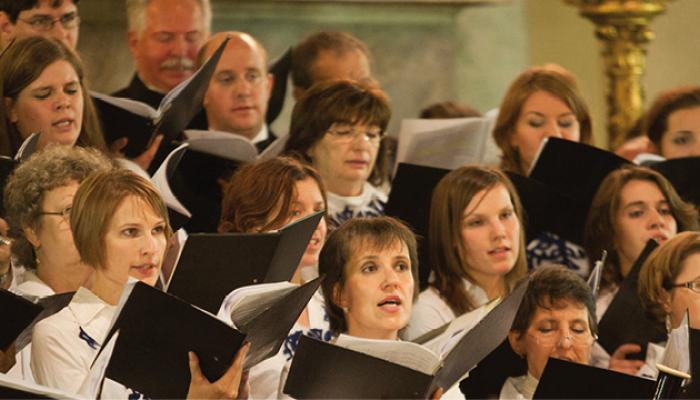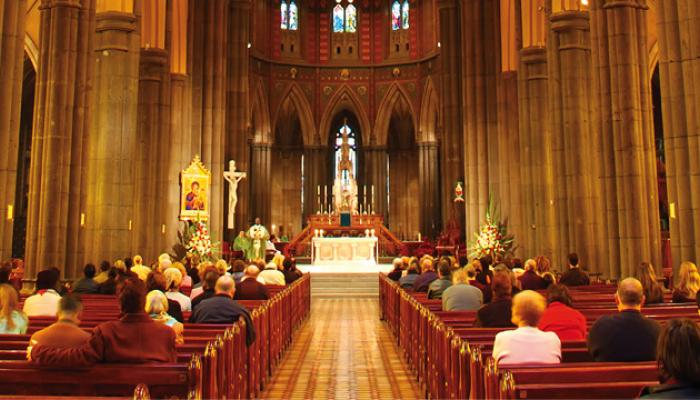
3.49 Tutti possono ricevere la Comunione?
La parola 'comunione' significa letteralmente diventare una cosa sola con Gesù. Egli volle che la Chiesa, che lui stesso istituì, fosse strettamente unita a lui. Le divisioni tra i Cristiani sono molto spiacevoli. Finchè non formeremo un’unica Chiesa, non possiamo riecevere l’Eucarestia insieme a tutti i cristiani.
Tutti sono i benvenuti a partecipare alla celebrazione dell’Eucarestia, ma prima di accostarsi a ricevere la comunione un cattolico si chiede nella preghiera se lo può fare con retta coscienza. Ad esempio, chi ha commesso peccati gravi dovrà prima chiedere perdono a Gesù. Puoi ricevere la comunione solo se vivi in unione alla Chiesa cattolica. Nell’app #TwDIO trovi i testi della Messa in molte lingue.
When is it possible to give Holy Communion to other Christians?
Catholic ministers may give Holy Communion licitly to members of the Oriental Churches which are not in full communion with the Catholic Church whenever they ask for it of their own will and possess the required dispositions. Catholic ministers may licitly give Holy Communion to members of other ecclesial communities only if, in grave necessity, they ask for it of their own will, possess the required dispositions, and give evidence of holding the Catholic faith regarding the sacrament. [CCCC 293]
What sort of preparation do I need in order to be able to receive Holy Eucharist?
Someone who would like to receive Holy Eucharist must be Catholic. If he has a serious sin on his conscience, he must first make a confession. Before approaching the altar, one should be reconciled with his neighbors.
Until a few years ago, the practice was to eat nothing for at least three hours before Mass; that was how people prepared to encounter Christ in Holy Communion. Today the Church requires at least one hour of fasting. Another sign of reverence is to wear one’s finest clothing—after all, we have a rendezvous with the lord of the world. [Youcat 220]
May the Eucharist be administered to non-Catholic Christians also?
Holy Communion is the expression of the unity of the Body of Christ. To belong to the Catholic Church, one must be baptized in her, share her faith, and live in union with her. It would be a contradiction if the Church were to invite to Communion people who do not (yet) share the faith and life of the Church. It would damage the credibility of the sign of the Eucharist.
Individual Orthodox Christians may ask to receive Holy Communion at a Catholic liturgy, because they share the eucharistic faith of the Catholic Church, although their Church is not yet in full communion with the Catholic Church. In the case of members of other Christian “ecclesial communities” or denominations, Holy Communion may be administered to an individual if there is a grave necessity and evidence of faith in the real Presence in the Eucharist. Joint celebrations of the eucharist / lord’s supper by Catholics and Protestants are the goal and the wish of all ecumenical efforts; to anticipate them, however, without having established the reality of the Body of Christ in one faith and in the one Church is dishonest and therefore not allowed. Other ecumenical liturgies, in which Christians of various denominations pray together, are good and
are also desired by the Catholic Church. [Youcat 222]
Consider how indignant you are against the traitor, against them who crucified him. Look therefore, lest you also yourself become guilty of the body and blood of Christ. They slaughtered the all-holy body, but you receive it in a filthy soul after such great benefits. [St. John Chrysostom, Homilies on St. Matthew, 82:5 (MG 58, 743)]





